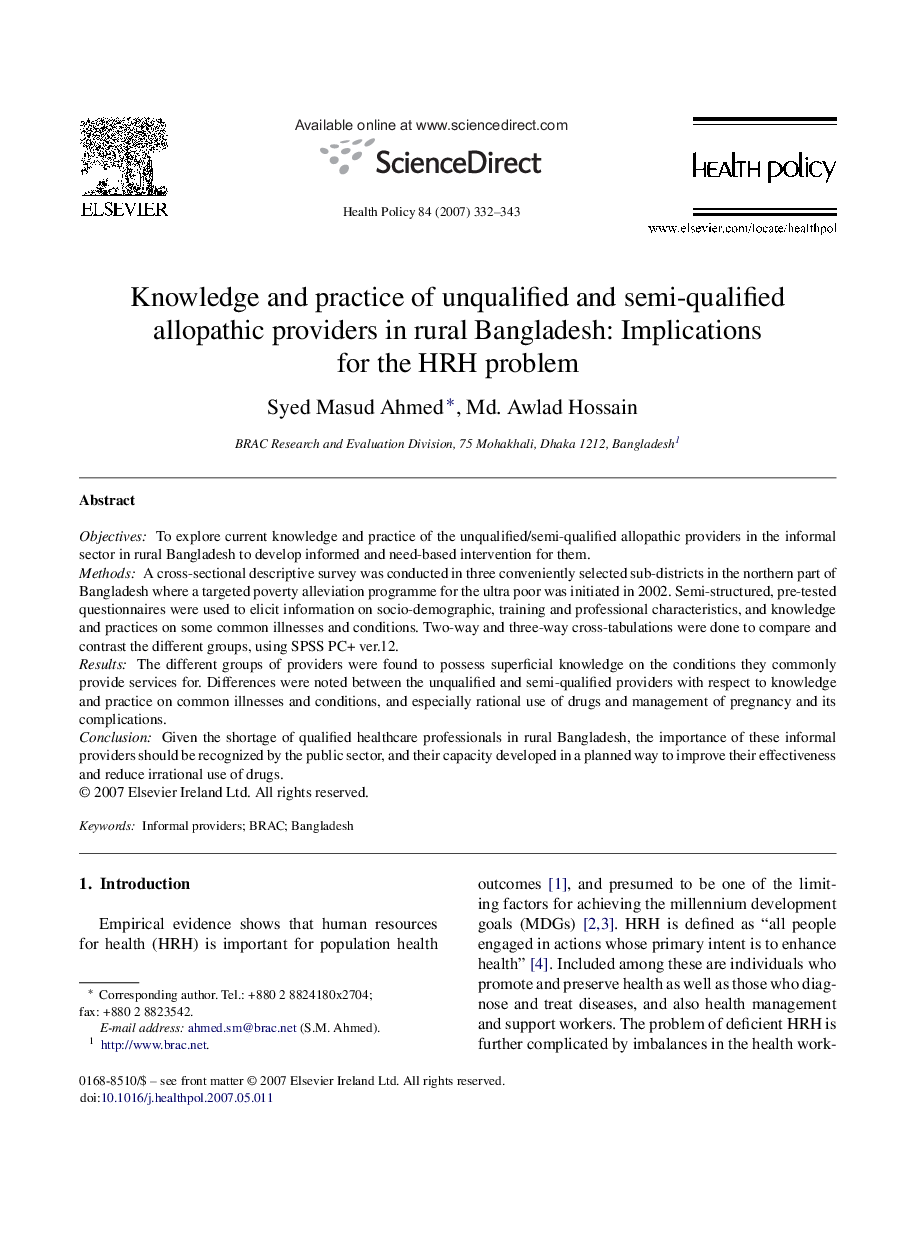| Article ID | Journal | Published Year | Pages | File Type |
|---|---|---|---|---|
| 4198777 | Health Policy | 2007 | 12 Pages |
ObjectivesTo explore current knowledge and practice of the unqualified/semi-qualified allopathic providers in the informal sector in rural Bangladesh to develop informed and need-based intervention for them.MethodsA cross-sectional descriptive survey was conducted in three conveniently selected sub-districts in the northern part of Bangladesh where a targeted poverty alleviation programme for the ultra poor was initiated in 2002. Semi-structured, pre-tested questionnaires were used to elicit information on socio-demographic, training and professional characteristics, and knowledge and practices on some common illnesses and conditions. Two-way and three-way cross-tabulations were done to compare and contrast the different groups, using SPSS PC+ ver.12.ResultsThe different groups of providers were found to possess superficial knowledge on the conditions they commonly provide services for. Differences were noted between the unqualified and semi-qualified providers with respect to knowledge and practice on common illnesses and conditions, and especially rational use of drugs and management of pregnancy and its complications.ConclusionGiven the shortage of qualified healthcare professionals in rural Bangladesh, the importance of these informal providers should be recognized by the public sector, and their capacity developed in a planned way to improve their effectiveness and reduce irrational use of drugs.
